Compare ERP Systems for Startups & Scale-ups
What are the best ERP systems for startups? We compare startup ERP software and scale-up ERP systems to help you get your ERP project started.
See our startup ERP system rankings below and learn more about startup & scaleup ERP systems and projects with our comparisons, guides and knowledge section below.
Best ERP Systems for Startups
Compare ERP systems for startup companies including FinTech, SaaS companies and more. We rank the best startup ERP systems according to costs, scalability and other key factors for startups.
Best ERP Systems for Scale-ups & IPO
Compare ERP systems for scaleups and hypergrowth companies gearing up for serious investment or initial public offerings. We rank the best ERP systems for the market leaders of tomorrow:
SAP Business One
SAP Business One ERP is a comprehensive software solution that supports startups by integrating essential business functions such as financials, sales, customer relations, inventory management, and operations. It offers automation, streamlining of operations, robust customer and sales tracking, inventory management, and decision-making tools based on business intelligence.
Having seen various startups implement SAP Business One, the system is noted for its scalability that allows it to grow with the business. For instance, a tech startup specializing in IoT devices used SAP Business One during its growth phase. They were able to manage their complex inventory needs and handle international transactions with ease, attributing their operational efficiency to the system's robust functionalities.
In another case, a service-based startup in the healthcare industry leveraged SAP Business One's project management features to keep track of their many client projects, improving their productivity and client relationship management. The mobile accessibility of the system was also a significant benefit for their field service teams, enabling access to real-time information anytime, anywhere.
Moreover, a retail startup found SAP Business One particularly advantageous due to its integration capabilities. They successfully linked their e-commerce platform with the ERP, which helped them to have a unified view of their inventory and sales data, significantly improving their ability to make quick, data-driven decisions.
Startups best suited to SAP Business One are those with complex inventory needs, multiple business units, international operations, or those in rapid growth stages. Industries like tech startups, service-based businesses, retail, and manufacturing have found considerable success with this ERP. However, startups need to consider the initial investment and ongoing costs associated with implementing and maintaining SAP Business One. For many, the efficiency gains and operational insights provided by the system justify these costs.
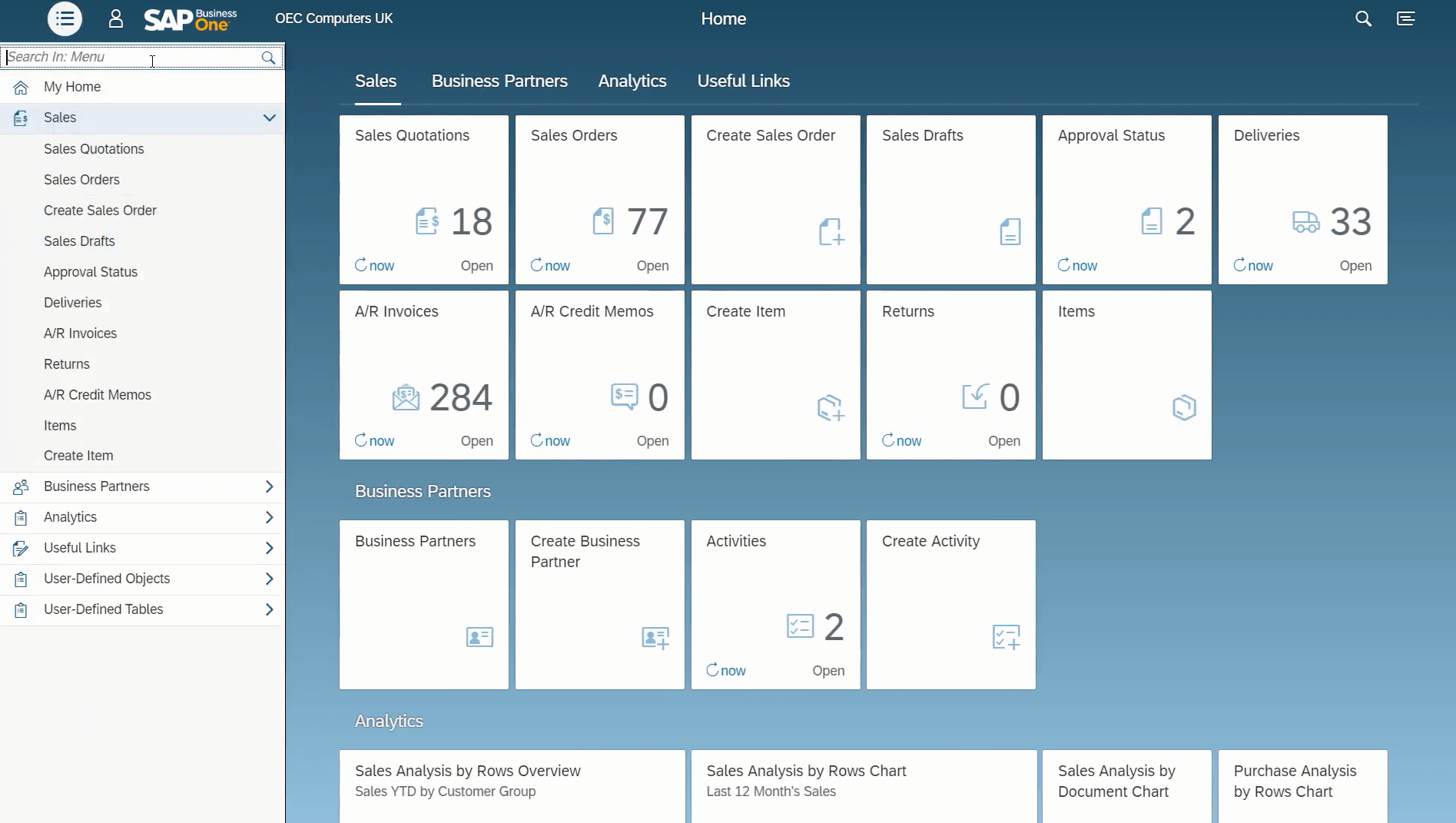
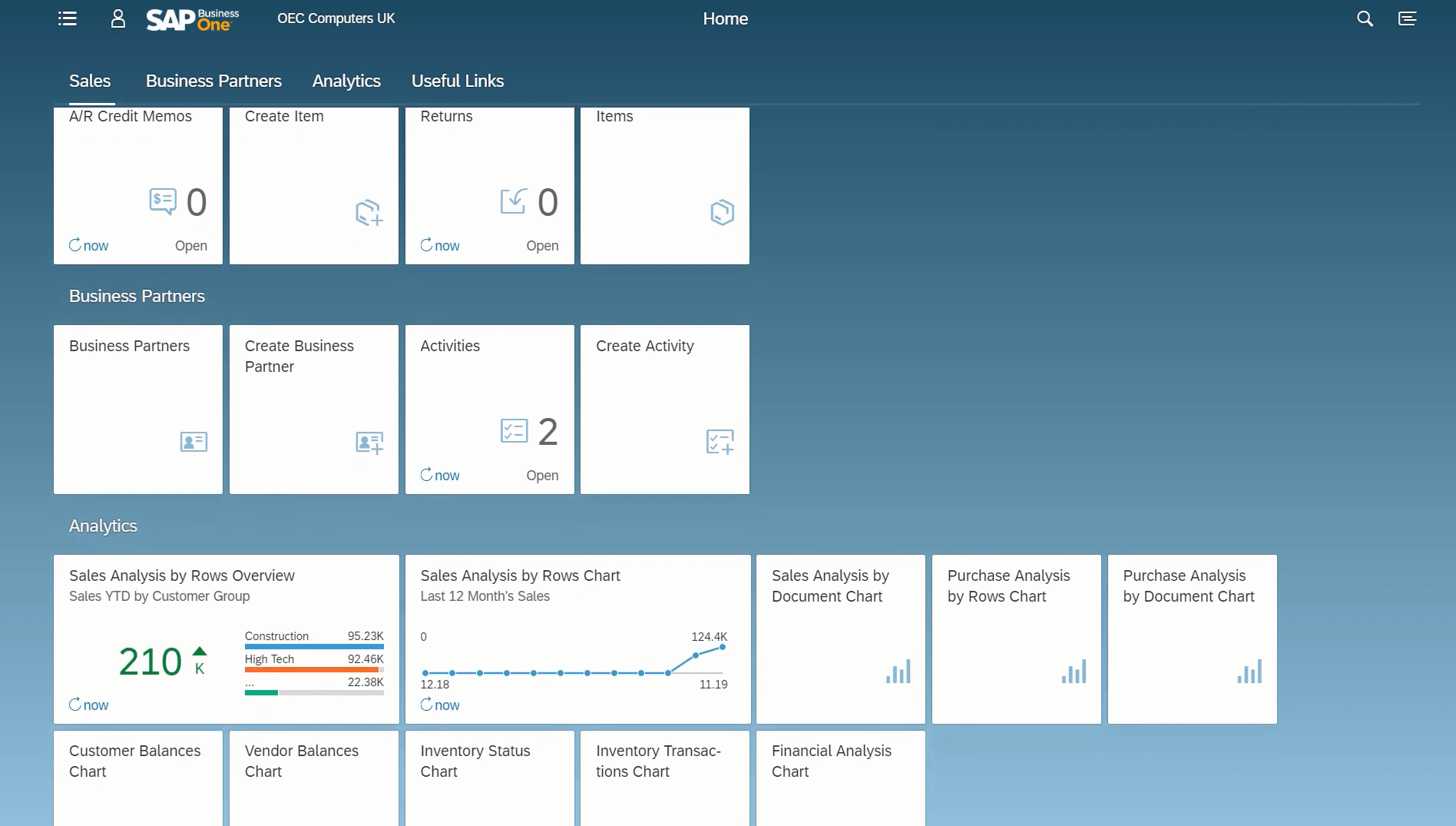
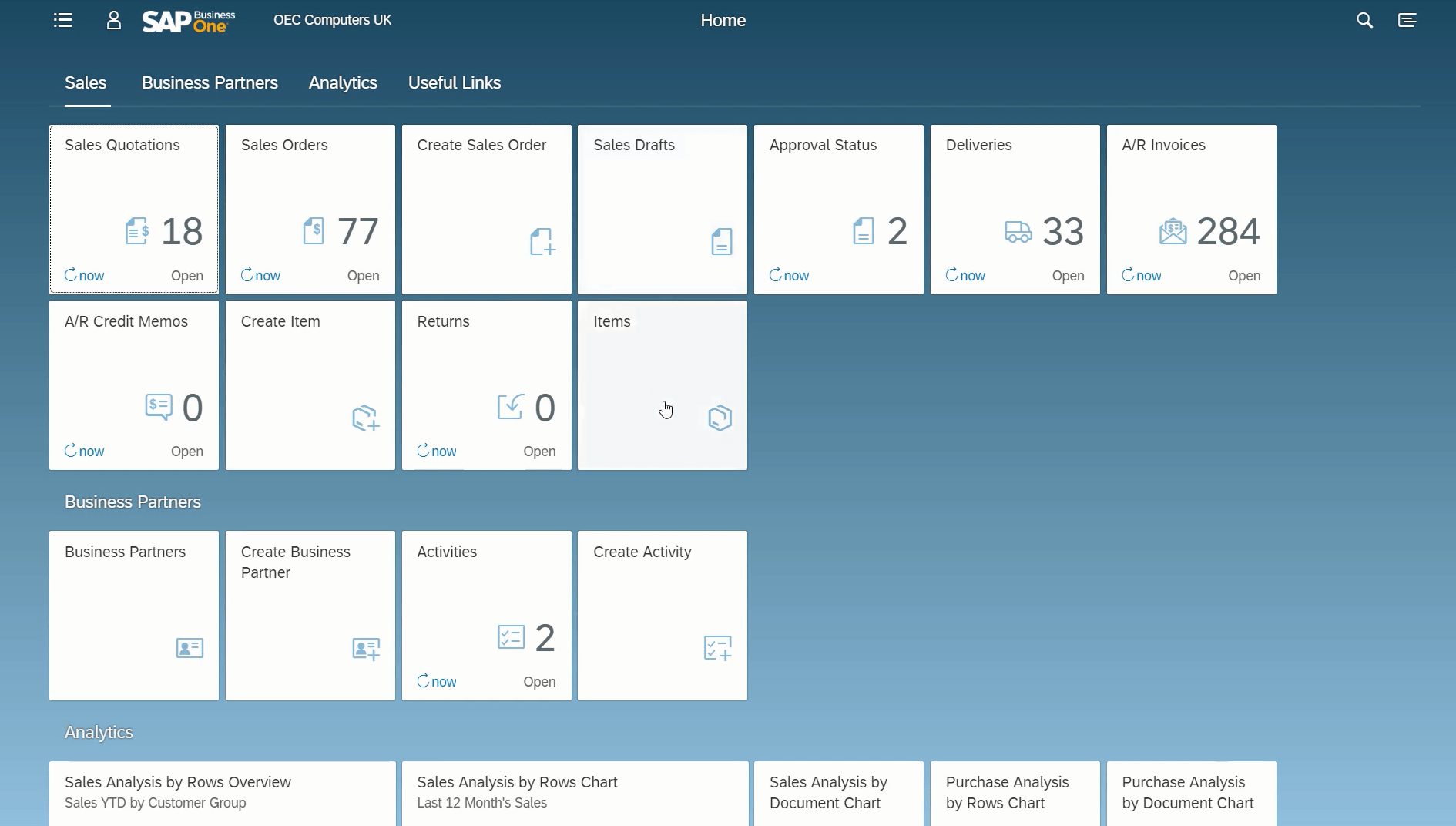
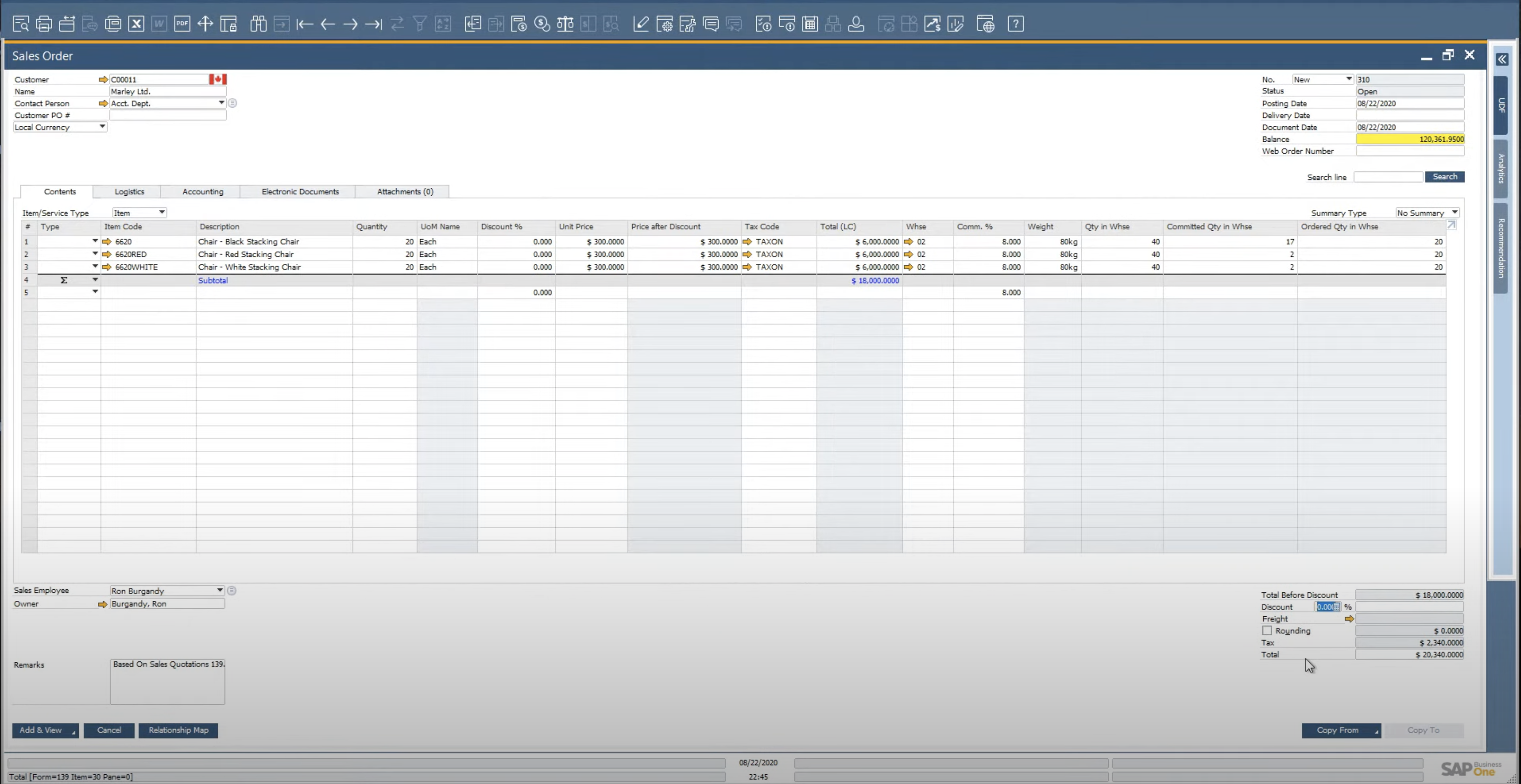
Sage Intacct
Sage Intacct ERP is a cloud-based financial management software that helps startups streamline and automate their financial processes, enabling them to make data-driven decisions and stay on top of their financial health. This platform is ideal for startups looking for a solution to manage core financial operations and adapt as they scale.
From experience observing startups implement Sage Intacct, several benefits stand out.
For instance, a SaaS startup was able to leverage Sage Intacct's robust financial management capabilities to manage their recurring billing and revenue recognition processes. This ensured compliance with financial regulations and provided a clear view of their financial status, which was crucial in their series B funding stage.
An e-commerce startup found Sage Intacct's real-time financial reporting and dashboard capabilities particularly beneficial. With instant access to crucial financial metrics, they could make timely and informed business decisions. Furthermore, the ability to integrate Sage Intacct with their e-commerce platform and CRM system allowed for a unified view of their operations, greatly enhancing operational efficiency.
A non-profit startup successfully utilized Sage Intacct's fund accounting features. This allowed them to manage multiple funding sources, track and report on individual fund balances, and demonstrate accountability to their donors, all from a centralized platform.
Startups in the growth phase, especially those in SaaS, e-commerce, and non-profit sectors, can significantly benefit from Sage Intacct due to its strong financial management, reporting, and integration capabilities. The platform is highly customizable and scalable, allowing it to adapt to changing business needs. However, similar to any ERP system, startups need to consider the costs of implementation and ongoing maintenance when deciding on Sage Intacct. Despite this, many find that the enhanced financial visibility and efficiency offered by the platform can be worth the investment.
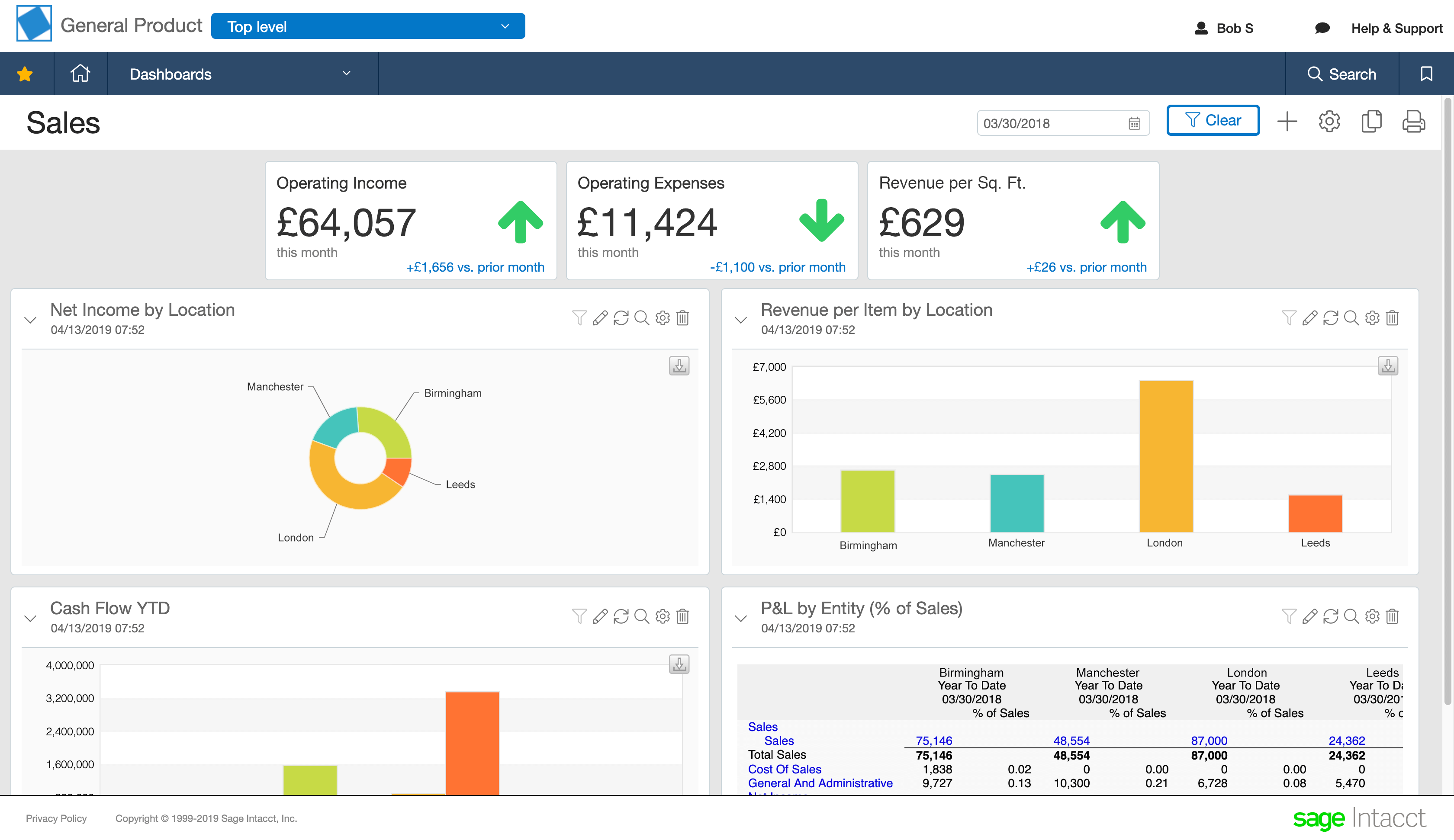
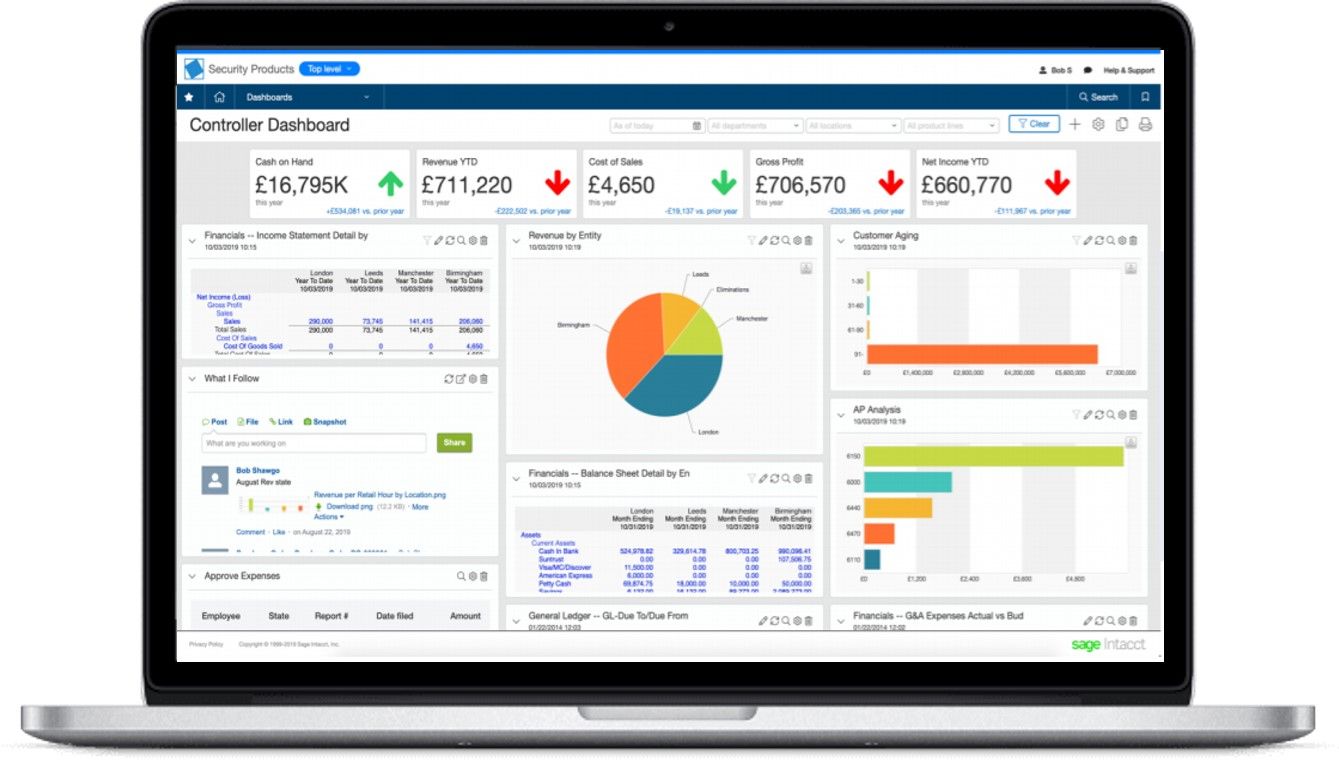

ERP for Startups & Scaleups Guide
Successful startups and scaleups and their employees are often juggling a variety of tasks and business processes across multiple internal applications, ranging from small accounting packages such as Xero and Quickbooks to project management tools like Asana or Monday.com, stock and inventory management tools, business intelligence platforms, Microsoft Excel and more.
Whilst this is fine to start with, using a variety of solutions to execute business processes can cause multiple issues such as data inconsistency, slow reporting and therefore it has knock on effects such as working longer hours, outdated information, unhappy customers, compliance issues, lack of investor confidence and more.
So, is ERP the best option for startups and scaleups in this position? If so, which ERP should you choose? How much does it cost to implement ERP for a startup? We answer these questions and many more below.
Why do Startups & Scaleups need ERP software?
Customer, User & Employee Satisfaction
Many startups and scaleups today are differentiating in the battle for the best talent and winning market share by optimising user and customer satisfaction as well as providing the best employee experience possible to attract the best people. This is also a key reason why startups choose to implement ERP systems.
When it comes to customer and user satisfaction, nothing can ruin the experience such as having delays in receiving a product, delayed refunds and other issues which are typically caused by running your business on multiple applications with little or no integration. ERP systems for startups enable startups & scale-ups to integrate their business processes and systems into a seamless flow, enabling them to deliver on their customer promises and contracts.
On the other hand, startups need the best people in order to win back market share in the first place. All too often, the best talent in any industry are moving to tech enabled, innovative startups, then are forced to deal with endless administration and slow reporting rather than putting their brains to work. Many startups will implement an ERP system simply to improve the quality and productivity of day-to-day work for their employees.
Raising Investor Confidence, IPO or SPAC
Many of the startups and scale-ups we've worked with at ERP Research choose to implement an ERP solution largely to provide their investors' confidence in their ability to mature and scale, ultimately protecting the money they invested. When implemented correctly, ERP systems enable startups and scaleups to move into new territories and geographies, identify productivity and efficiency issues and bottlenecks and ultimately provide auditable accounting information.
Many startups and scaleups will therefore implement a new ERP system, simply to raise investor confidence and raise their next $10-500M in funding, or to enable them to meet the requirements for an initial public offering (IPO) or SPAC merger.
Which startups & scaleups are implementing ERP solutions?
Startup & scaleup companies across multiple industries implement ERP systems at different points in their growth journey. We have seen companies in the software-as-a-service (SaaS), FinTech/financial technology, biotechnology, marketing and advertising, manufacturing, property startup categories implementing ERP solutions according to their specific needs.
What are the ERP needs for startups & scaleups?
Scalability
The last thing any business wants is to have to go through multiple ERP implementations in a short space of time. Therefore choosing an ERP system that will scale with your business is key. When selecting a new ERP system for your startup, you need to ensure that it can cope with the demands of your business as you grow.
Can your ERP handle the amount of transactions you'll need to process in 3-5 years time? Does your startup ERP provide accounting and tax localizations for the countries you plan to expand into over the next few years? Is the ERP system updated regularly by your ERP vendor?
Flexibility
Many startups & scale-ups aren't sure what their business will look like in a few years time. The need may come to pivot into different products or services, or add additional products to their offering. Depending on this, your startup business process and capabilities may need to significantly adapt or retool. It's therefore recommended that you select a new ERP system for your startup or scale-up that offers the maximum flexibility and breadth of functionality to enable this.
Cloud ERP First
Most startups and scale-ups have no On-Premise IT infrastructure and have no plans to change that. Instead, startups and scaleups today are opting for 100% Cloud infrastructure and applications to allow them to flex usage as well as remove administration and wasted IT resource. The same goes for ERP systems for startups and in response, there are many Cloud native ERP systems to enable this. Check out our guide to Cloud ERP for more information.
Reporting & Analytics
Startup ERP systems must have inbuilt reporting & analytics to provide startup leaders to quickly analyze the position of their business in real-time across financials, stock, human resources, projects, sales and more.
Financial Management
What is the best ERP system for startups? What is the best ERP system for scaleups?
The best ERP system for startups and scaleups will always depend on the industry of the company and the specific business processes they need to accomodate. As well as this, due to growth rate of startups and scaleups, you also need to anticipate potential changes or requirements that will be needed in the future.
Check out our rankings of ERP solutions for startups and scaleups to get started.
How much does ERP cost for a startup & scaleup?
We have put together a complete guide and breakdown on the costs of ERP implementations and ongoing costs. The costs can of course vary for all ERP implementation and depend on factors including ERP project scope, geography, the ERP software itself and ability to adopt standard ERP business processes.
How do I choose an ERP for my startup or scaleup?
Choosing an ERP system for startups or scaleups needs to start with an ERP requirements gathering process. This involves compiling a document containing your ERP requirements which can be used to internally and externally communicated the needs of your business and the criteria for selecting a new ERP system.
You can use our free ERP requirements template to speed up this process.
How do I implement startup ERP?
Whilst it is possible to implement an ERP solution yourself, many startup businesses and larger businesses choose to hire a third party systems integrator or ERP systems implementation partner to do this for them.
Startup to Scale-Up: is ERP your next step?
When is the best time for a startup or scaleup company to implement an ERP solution?
ERP Requirements Gathering (RFI, RFP) Template Excel
Start your pharmaceutical ERP evaluation process with our RFI & RFP Excel template for the pharma & biotech industry.
ERP Project Budget Calculator Template
Calculate the costs of your pharmaceutical ERP project with our prebuilt budget calculator.










